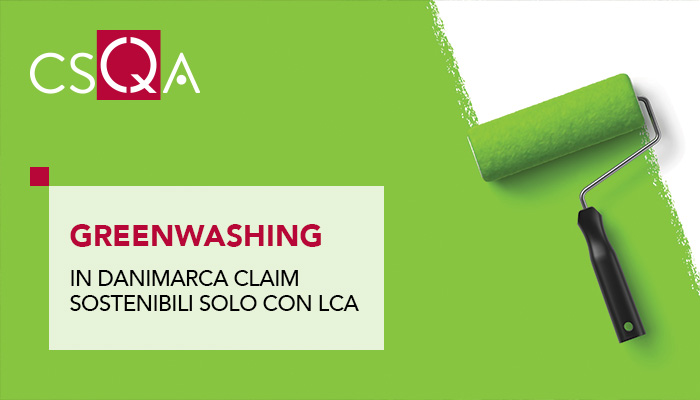
Without Life cycle assessment ( LCA ) in the company, sustainability claims cannot be spent: it is the decision of the Danish Antitrust destined to set the standard in Europe in times of ecological transition in which one of the fundamental points is precisely that of countering the phenomenon of Green washing (fake sustainability).
The Danish Ombudsman, which is the body similar to our Competition and Market Authority (AGCM), has recently intervened on the improper use of the so-called green claims , environmental declarations that are increasingly used today above all for marketing purposes, with the publication of a "Quick guide for companies on environmental marketing".
The guide collects all the main decisions in this regard, issued by the competent authorities, with the aim of defining a clear boundary between the lawful and the unlawful , providing companies with a useful handbook to communicate their environmental values correctly and with respect for consumers, in the light of a fundamental indication: in the absence of precise data it is not legitimate to speak of "sustainability".
The document clearly states that, due to the difficulty in defining any generically "sustainable" product or service and in order to avoid the risk of formulating vague, incorrect or misleading messages or ones that can be prosecuted as misleading advertising, only a life cycle analysis (LCA) can put economic operators and consumers on the safe side.
LCA is an objective method for assessing and quantifying energy and environmental loads and the potential impacts associated with a product or service, a process or, more generally, an activity along the entire life cycle, i.e. from the acquisition of raw materials to their eventual disposal or recovery (form craddle to grave, 'from cradle to grave' or, in a circular perspective, form craddle to craddle 'from cradle to cradle').
The Danish Ombudsman's guidance comes after a study by the European Commission in January 2021, carried out on the basis of the analysis of company websites regarding declarations of "sustainability" of products and services, which showed that more than half fell into the offence. 37% of these misleading green claims were based on vague and generic statements, the remaining 59% lacked objective information and supporting data.
Also in 2021, but in November, Italy too, in particular the court of Gorizia, had its first conviction for greenwashing demonstrating that this issue is becoming more binding than ever. (Source: Mariangela Latella, https://www.freshcutnews.it/ )